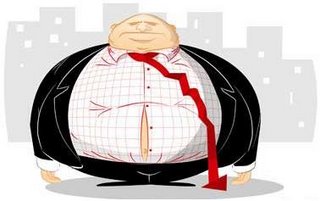US loses top competitiveness spot
 The U.S. has lost its status as the world's most competitive economy, according to the World Economic Forum. The U.S. now ranks only sixth in the body's league table of global competitiveness, behind Switzerland, Finland, Sweden, Denmark and Singapore.
The U.S. has lost its status as the world's most competitive economy, according to the World Economic Forum. The U.S. now ranks only sixth in the body's league table of global competitiveness, behind Switzerland, Finland, Sweden, Denmark and Singapore. Risks attached to the large U.S. trade and fiscal deficits prompted its fall. The UK has retained its place among the world's 10 most competitive economies but China, Russia and Brazil have all fallen down the rankings.
Publishing its Global Competitiveness Index, the World Economic Forum (WEF) said the best performing countries were distinguished by their competent economic stewardship, investment in higher education and a emphasis on technological development and innovation.
Although the U.S. remained the global engine of technology, WEF said its business environment was being endangered by the fragile state of its public finances.
The U.S. has seen its budget and trade deficits spiral in the past few years as a result of heavy government spending and rising trade imbalances with countries such as China and Japan.
The U.S. trade deficit is expected to top last year's record level of $717 bn ( £378 bn; 565 bn euros) in 2006, while the budget shortfall, although expected to be significantly lower than last year, is still forecast to be close to $300 bn.
U.S. competitiveness is threatened by large macroeconomic imbalances, particularly rising levels of public indebtedness associated with repeated fiscal deficits. Its relative ranking remains vulnerable to a possible disorderly adjustment of such imbalances.
The WEF praised the UK for its flexible labour markets and low unemployment rate compared to the rest of continental Europe. But it said the UK, in common with Germany and Italy, was afflicted by public sector deficits and rising levels of public indebtedness.
China, Russia and Brazil, among the world's fastest growing economies, all suffered a decline in their relative competitiveness.
China fell from 48 to 54 in the ranking, its rapid economic growth and low inflation offset by an over-regulated banking sector and low penetration of mobile and internet technology outside urban areas.
Russia slipped from 53 to 62, with concerns over the independence of the country's legal system and safeguarding of property rights singled out as key concerns, the WEF.
Labels: article, competitive, deficit, economic, economy, England, finance, finances, financial, growth, information, intesting, investments, market, money, pound, rank, U.K. UK, WEF



